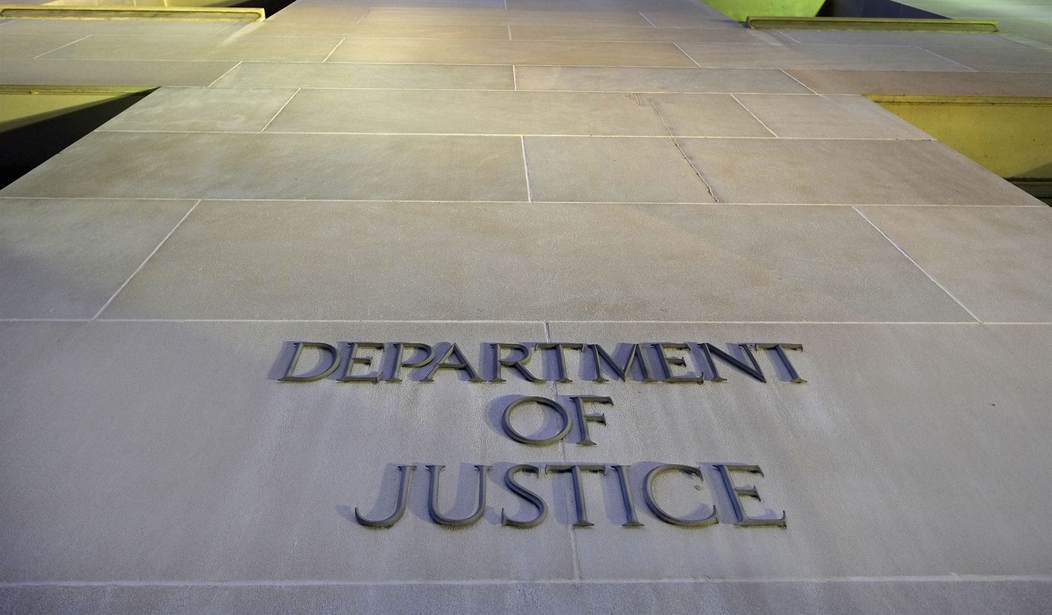An arm of the Federal government is committing theft – and we’re paying to make the process more efficient.
We learn today that the United States Department of Justice is spending billions of taxpayer dollars on private companies to manage asset forfeiture investigations. That’s “billions” with a “B.”
This money is being spent to allow the Justice Department under Attorney General Merrick Garland to more efficiently seize the property of American citizens. This is a process called “civil asset forfeiture,” and it is arguably a violation of the Fourth and Fifth Amendments.
The Department of Justice is shelling out more than $6 billion to private companies to manage its asset forfeiture investigations, raising alarm from one nonprofit law firm that accuses police of “treating ordinary Americans like ATMs” and seizing their cash.
“You’ve probably heard the adage, ‘You’ve gotta spend money to make money.’ Here, it’s ‘You’ve gotta spend money to take money,'” said Dan Alban, head of the Institute for Justice’s (IJ) National Initiative to End Forfeiture.
Asset forfeiture is the process through which the government seizes money or other property that is believed to be linked to a crime. Most federal forfeitures are civil, meaning the government can keep the seized property without ever charging the owner with a crime.
Why does the Federal government do this? Here’s why:
Forfeiture generated more than $45.7 billion in revenue for the federal government alone between 2000 and 2019, according to IJ. Proceeds are often split between federal and local police agencies
It’s always about the money.
I have a laundry list of objections to the very idea of civil forfeiture, but here are the main ones (emphasis added by me):
Fourth Amendment
The right of the people to be secure in their persons, houses, papers, and effects, against unreasonable searches and seizures, shall not be violated, and no Warrants shall issue, but upon probable cause, supported by Oath or affirmation, and particularly describing the place to be searched, and the persons or things to be seized.
And:
Fifth Amendment
No person shall be held to answer for a capital, or otherwise infamous crime, unless on a presentment or indictment of a Grand Jury, except in cases arising in the land or naval forces, or in the Militia, when in actual service in time of War or public danger; nor shall any person be subject for the same offence to be twice put in jeopardy of life or limb; nor shall be compelled in any criminal case to be a witness against himself, nor be deprived of life, liberty, or property, without due process of law; nor shall private property be taken for public use, without just compensation.
These two statements of an American citizen’s fundamental rights would seem to preclude any such action by government at any level, wouldn’t it? But the FBI has continually tried to justify this theft-in-the-name-of-the-law.
…”Forfeiture can also serve as a deterrent to others who might be considering criminal activities,” the FBI wrote in a 2017 release.
But critics like IJ argue innocent Americans are often targeted by forfeiture. Fighting to get seized property back is difficult and expensive since forfeiture effectively places the burden of proof on the property owner, not the government, and because it’s a civil case, there is no right to a public defender, according to Alban.
One of IJ’s clients had her nest egg seized during an FBI raid on U.S. Private Vaults in 2021. The FBI seized safety deposit boxes and their contents — totaling around $86 million in cash and tens of millions more in gold, silver, jewelry and other valuables — from 58-year-old Linda Martin and other customers.
U.S. Private Vaults was eventually charged with money laundering. But Linda Martin was never charged with any crime. She lost her property and has little or no recourse to recover it. This kind of thing happens far too often. In 2020, the Institute for Justice published a study showing that “78% of all forfeiture cases the DOJ processed between 2000 and 2019 were administrative, meaning agencies seized property with little or no judicial oversight.”
Little or no judicial oversight means “little or no due process,” which anyone with enough brains to pound sand can see directly violates the Fourth and Fifth Amendments. And yet these seizures go on. The motivation for agencies to carry out these actions is obvious: They are raking in money hand over fist.
This isn’t the kind of a thing that is supposed to happen in a free country, a country where the citizens have rights, where the people are supposed to be secure in their property. So why haven’t we seen the very idea challenged in the courts? How would the Supreme Court rule on this issue? We know how they should rule, but how would they rule?
It’s baffling that this practice is allowed to go on. But allowed it is, it goes on not just at the Federal level but in other jurisdictions and in other processes as well. While ruining the lives of innocent citizens, it sure is enriching attorneys, the aforementioned investigation firms, and obviously the agencies doing the seizing.
But what is really troubling right now about this practice is how it could be expanded – say, asset forfeiture or even imprisonment for wrong-think. Think it couldn’t happen here? Think it couldn’t happen in a Western country, where people have rights? Yeah? Look north, to Canada, a supposedly liberal Western democracy, where it’s happening right now.
Dangerous ideas like this should be strangled at birth, because killing them is much harder when they’re full-fledged.















